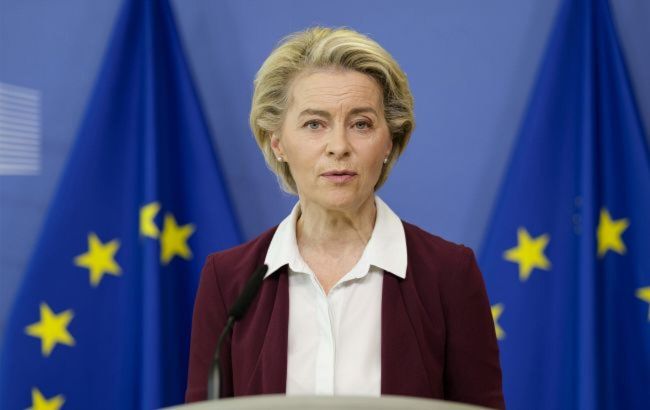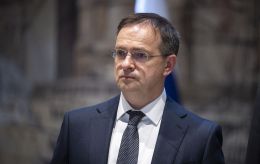Ursula von der Leyen may lose European Commission presidency
 Photo: European Commission President Ursula von der Leyen (Getty Images)
Photo: European Commission President Ursula von der Leyen (Getty Images)
The European Parliament is preparing to consider a vote of no confidence against European Commission President Ursula von der Leyen, according to Euractiv and Euronews.
Romanian far-right lawmaker Gheorghe Piperea, leader of the Alliance for the Union of Romanians (AUR) party and member of the European Conservatives and Reformists (ECR) group, has initiated a motion of no confidence against European Commission President Ursula von der Leyen.
Last week, Piperea submitted the request with 74 initial signatures. Although a few MEPs later withdrew their support, he claimed the number had risen to 79, enough for the motion to be formally considered in Parliament.
Motion grounds
The move stems from Piperea’s outrage over von der Leyen’s undisclosed text messages with Pfizer CEO Albert Bourla during COVID-19 vaccine procurement negotiations. Additional allegations include the possible misuse of post-pandemic funds and accusations that the Commission pushed green policies by financing NGOs.
Slim chances of success
European Parliament President Roberta Metsola informed the Conference of Presidents that the motion complies with Rule 131 of the Parliament's Rules of Procedure. The debate is set for Monday, July 7, with a vote scheduled for Thursday, July 10, during the plenary session in Strasbourg, pending Metsola’s final decision this week.
To pass, the motion would require at least 361 votes out of 720, which is an unlikely scenario.
Piperea said he was confident there would be a vote against the motion, adding that although many MEPs were dissatisfied with von der Leyen’s policies, they were unlikely to push for her resignation at this point.
Still, he hopes the initiative could "open Pandora’s box," prompting further no-confidence efforts in the months to come.
Von der Leyen's recent activity
In July 2024, the newly elected European Parliament confirmed Ursula von der Leyen for a second term as Commission President (2024–2029).
She recently advocated for Europe to develop deterrence strategies by 2030 amid fears of Russian aggression against NATO and European nations. Von der Leyen has also urged the West to intensify pressure on the Kremlin to stop its war against Ukraine.

